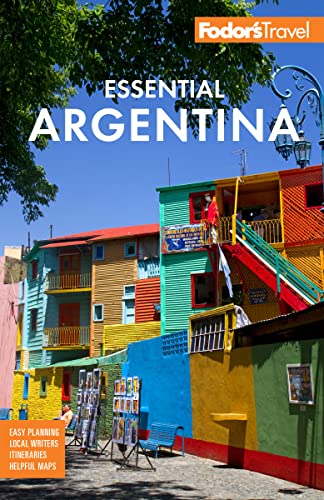Safety
Argentina is safer than many Latin American countries. However, there has been an increase in street crime—mainly pickpocketing, bag-snatching, and occasionally mugging—especially in Buenos Aires. Taking a few precautions when traveling in the region is usually enough to avoid being a target.
Attitude is essential: strive to look aware and purposeful at all times. Don't wear any jewelry you're not willing to lose. Even imitation jewelry and small items can attract attention and are best left behind. Keep a very firm hold on purses and cameras when out and about, and keep them on your lap in restaurants, not dangling off the back of your chair.
The most important advice we can give you is that you should not put up a struggle in the unlikely event that you are mugged. Nearly all physical attacks on tourists are the direct result of their resisting, so comply with demands, hand over your stuff, and try to get the situation over with as quickly as possible—then let your travel insurance take care of it.
Crime
Always remain alert for pickpockets. Try to keep your cash and credit cards in different places, so that if one gets stolen you can fall back on the other. Tickets and other valuables are best left in hotel safes. Avoid carrying large sums of money around, but always keep enough to have something to hand over if you do get mugged. Another time-honored tactic is to keep a dummy wallet (an old one containing an expired credit card and a small amount of cash) in your pocket, with your real cash in an inside or vest pocket.
Women can expect pointed looks, the occasional piropo (a flirtatious remark, usually alluding to some physical aspect), and some advances. These catcalls rarely escalate into actual physical harassment—the best reaction is to ignore it as local women do. Going to a bar alone will be seen as an open invitation for attention. If you're heading out for the night, it's wise to take a taxi.
There's a notable police presence in barrios popular with visitors, such as San Telmo and Palermo, and this seems to deter potential pickpockets and hustlers. However, porteños (residents of Buenos Aires) have little faith in the police—at best they’re well-meaning but underequipped, so don't count on them to come to your rescue in a difficult situation. Reporting crimes is usually ineffectual, and is worth the time it takes only if you need the report for insurance.
Protests and Rallies
Argentineans like to speak their minds, and there has been a huge increase in strikes and street protests since the economic crisis of 2001–02. Protesters frequently block streets and squares in downtown Buenos Aires, causing major traffic jams. Some are protesting government policies; others may be showing support for these. Either way, trigger-happy local police have historically proved themselves more of a worry than the demonstrators. Although protests are usually peaceful, exercise caution if you happen across one.
Scams
Beware scams such as the offer by a seemingly kindly passerby to help you clean the mustard/ketchup/cream that has somehow appeared on your clothes: while your attention is occupied, an accomplice picks your pocket or snatches your bag.
Taxi drivers in Buenos Aires are usually honest, but occasionally they decide to take people for a ride. All official cabs have meters, so make sure this is turned on. Some scam artists have hidden switches that make the meter tick over more quickly, but simply driving a circuitous route is a more common ploy. It helps to have an idea where you're going and how long it will take. Locals say that if you’re hailing taxis on the street you are safer opting for ones with lights on top (usually labeled "Radio Taxi"). Late at night, try to call for a cab—all hotels and restaurants, no matter how cheap, have a number and will usually call for you.
When asking for price quotes in touristy areas, always confirm whether the amount is in dollars or pesos. Some salespeople, especially street vendors, have found that they can take advantage of confused tourists by charging dollars for goods that are actually priced in pesos.
Advisories and Other Information
Transportation Security Administration. www.tsa.gov.
U.S. Department of State. www.travel.state.gov.




